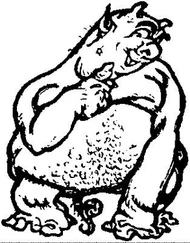Teffi criticized the Bolsheviks for their inability to correctly judge the movement of history, but revealed a stunning lack of foresight when she asked rhetorically: “Is not the word ‘Bolshevik’ now discredited forever and irrevocably?” For only a few months later, on the night of October 24–25, they carried out their bloodless coup in Petrograd. In their effort to solidify their position, the Bolsheviks quickly acted to stifle the opposition press, shutting down Russkoe slovo and other unfriendly periodicals in late November 1917. The staff writers, including Teffi, did not succumb easily, however, for in January 1918, they opened another newspaper, which they called Novoe slovo (New Word). When it was closed on April 2, the determined journalists opened yet another newspaper, Nashe slovo (Our Word) on April 11, which lasted until July 6. Satirikon (now Novyi Satirikon , New Satirikon) eked out its existence until August 1918, with Teffi’s works appearing to the very end.
Life in Petrograd grew intolerable, both materially and morally, during the months following the October Revolution. Aside from a pervasive atmosphere of fear among the Bolsheviks’ political and class enemies, during the bitterly cold winter of 1917–18 the city was suffering from severe shortages of food and fuel. By March 1918, things had reached such a pass that Teffi declared Petrograd dead: “We live in a dead city… On the streets are the corpses of horses, dogs, and quite frequently of people… At night dark, frightened figures steal up to the horse corpses and carve out a piece of meat.” [23] “Iz mertvogo goroda,” V strane , 149. Orig. pub. in Novoe slovo , Mar. 8 (21), 1918, no. 34.
She writes of arrests: “Someone released from a Petrograd prison tells about executions… Nobody knows anything for certain, but in the dead city they are always talking about death and always believe in it.” [24] Ibid., 151.
In a piece written in Kiev the following October, Teffi quotes a typical conversation between two Petrograd acquaintances:
“He’s arrested, arrested. It’s not known where…”
“They’ve been executed, both of them…”
“It’s said they were tortured… shhh… Somebody’s listening in.” And suddenly his face adopts an unnatural, carefree expression and his trembling lips whistle “Pretty Girls of the Cabaret.” [25] “Peterburg,” V strane , 171. Orig. pub. in Kievskaia mysl’ , Oct. 4 (17), 1918, no. 188.
In May 1918, Teffi left hungry Petrograd for Moscow; the theater magazine Rampa i zhizn’ (Footlights and Life) noted her delight with “Moscow bread.” [26] “Letuchaia mysh’,” Rampa i zhizn’ , May 6 (19), 1918 (no. 20): 11.
She probably came to Moscow that spring to attend rehearsals of Catherine the Great , an operetta she co-wrote with the comic poet Lolo (L. G. Munshtein, c. 1866–1947), which opened with great success in August. Another and more urgent reason for her departure from Petrograd, however, might have been a troubling incident that took place at the very beginning of 1918: An actress was arrested after a New Year’s Day performance of works by Teffi and Averchenko, and only after a lengthy interrogation and a warning that “she must not dare to earn her bread through slander of the people’s government,” was she let go. [27] “Khronika,” Teatr i iskusstvo , Jan. 7, 1918 (no. 1): 5.
(In Memories Teffi reimagines this incident, also moving it to a later date.)
By September 1918, life in Moscow was also growing more dangerous. In contrast to Petersburg, as Teffi later wrote from Kiev, Moscow was “still alive,” although just barely: “Mad motorcars race, with a whistle and a whoop. Rifle shots enliven the black silence of nocturnal streets. Moscow is being robbed and stabbed. It is still alive, still protesting, jerking its legs and pressing a foreign passport to its heart.” [28] “Peterburg,” 170.
This was the situation confronting Teffi at the beginning of Memories .
•
In the title piece to Teffi’s 1927 book, The Small Town (the title referring to the Russian colony within the larger Parisian metropolis), she expresses her disdain for émigré memoir writers. Aside from the usual categories of men and women, she writes, the town’s population includes “ministers and generals,” who spend their time amassing debts and writing memoirs. [29] “Gorodok (Khronika),” in Gorodok (Paris: Izd. N.P. Karbasnikova, 1927), 5.
“The memoirs,” she adds, “were written to glorify their own name and to disgrace their comrades in arms. The difference among the memoirs consisted in the fact that some were written by hand and others on a typewriter.” [30] Ibid., 6.
In the note that introduces her own Memories , Teffi signals at once that she has written a very different kind of book—one in which there are no heroes, no specific political line, no lofty conclusions. Her subjects instead are “ordinary unhistorical people who struck her as amusing or interesting.” [31] “Ot avtora,” Vospominaniia (Paris: Vozrozhdenie, 1931, 5. Memories was first serialized in the newspaper, Vozrozhdenie between 1928 and 1930.
The word “amusing” might at first seem jarring, given her grim subject matter, but in Teffi’s view the funny and the tragic are not mutually exclusive. She writes in Memories , in a remark that could characterize her comic vision as a whole: “But life in Odessa soon began to pall. A joke is not so funny when you’re living inside it. It begins to seem more like a tragedy.” A number of critics noted that the humor only accentuated the horror. Mikhail Tsetlin, for example, wrote: “The laughter and bitterness in Teffi’s book are so funny, and thereby it [the book] achieves a double impression: what nonsense and what sadness and what horror!” [32] M. Tsetlin, “N. A. Teffi. Vospominaniia ,” Sovremennye zapiski , 1932, no. 48: 482.
The author of Memories indeed makes no claim of heroism, warns us that she does not consider herself any more interesting than the others. For the most part Teffi portrays herself (as she often does in her writings) as a quite ordinary woman—frivolous, of limited understanding, guided more by emotions and naïve ideals than by abstract principles. But when need be she drops the mask, and the reader views events through her penetrating gaze. The closest thing to a hero in Teffi’s dark comedy is the unlikely figure of “pseudonym Gooskin,” her “impresario,” who persuaded her to leave Moscow for a time and go on a reading tour of still Bolshevik-free Ukraine. An Odessan Jew whose non-sequiturs and mangling of the Russian language are a constant source of humor, Gooskin bears none of the external attributes of the hero, but during the treacherous trip from Moscow through the lawless western reaches of Russia it is his wiliness—his ability to outsmart the antagonist and lay low if necessary—that saves Teffi and her companions time and again.
Teffi parts ways with Gooskin in Kiev, and the remainder of the book traces her path down the map of the former Russian Empire, with stops in Odessa, Novorossiisk, Yekaterinodar. Everywhere she went she witnessed a similar dynamic: refugees like herself trying to rebuild cultural and social structures destroyed by revolution only to find them once again toppled by the forces of civil war. In Kiev, still occupied by the Germans in accordance with the Brest-Litovsk Treaty, Teffi encountered many literary and theatrical colleagues who, like herself, had fled from Bolshevik Russia and were now trying feverishly to start up theaters, newspapers, and other cultural institutions. At first it seemed like a “festival,” she writes, but the second impression was of “a station waiting room, just before the final whistle.” When the Germans, defeated in the World War, left in December 1918, and, after the brief rule of Ukrainian nationalists, the Bolsheviks began their approach in January 1919, the refugees fled further.
Читать дальше












